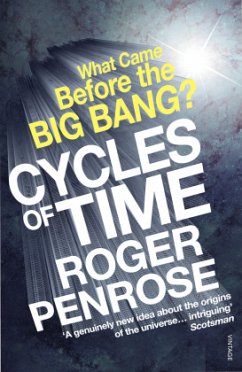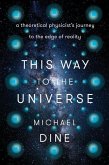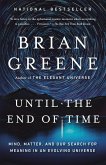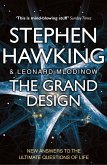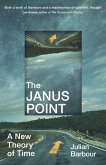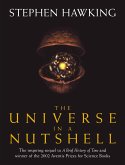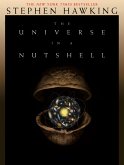__WINNER OF THE 2020 NOBEL PRIZE IN PHYSICS__
What came before the Big Bang?
How did the universe begin and must it inevitably end?
In this remarkable book Roger Penrose brilliantly illuminates some of the deepest mysteries of the universe.
Cycles of Time contains a penetrating analysis of the second law of thermodynamics - according to which the 'randomness' of our world is continually increasing - and a thorough examination of the light-cone geometry of space-time. It combines these two central themes to show how the expected ultimate fate of our accelerating, expanding universe can actually be reinterpreted as the 'big bang' of a new one.
Presenting various standard and non-standard cosmological models, discussing black holes in depth as well as taking in the role of the cosmic microwave background along the way, Roger Penrose argues that the Big Bang was not actually the beginning of everything - nor will it signal the end.
'Science needs more people like Penrose, willing and able to point out the flaws in fashionable models from a position of authority, and to signpost alternative roads to follow' Independent
What came before the Big Bang?
How did the universe begin and must it inevitably end?
In this remarkable book Roger Penrose brilliantly illuminates some of the deepest mysteries of the universe.
Cycles of Time contains a penetrating analysis of the second law of thermodynamics - according to which the 'randomness' of our world is continually increasing - and a thorough examination of the light-cone geometry of space-time. It combines these two central themes to show how the expected ultimate fate of our accelerating, expanding universe can actually be reinterpreted as the 'big bang' of a new one.
Presenting various standard and non-standard cosmological models, discussing black holes in depth as well as taking in the role of the cosmic microwave background along the way, Roger Penrose argues that the Big Bang was not actually the beginning of everything - nor will it signal the end.
'Science needs more people like Penrose, willing and able to point out the flaws in fashionable models from a position of authority, and to signpost alternative roads to follow' Independent

